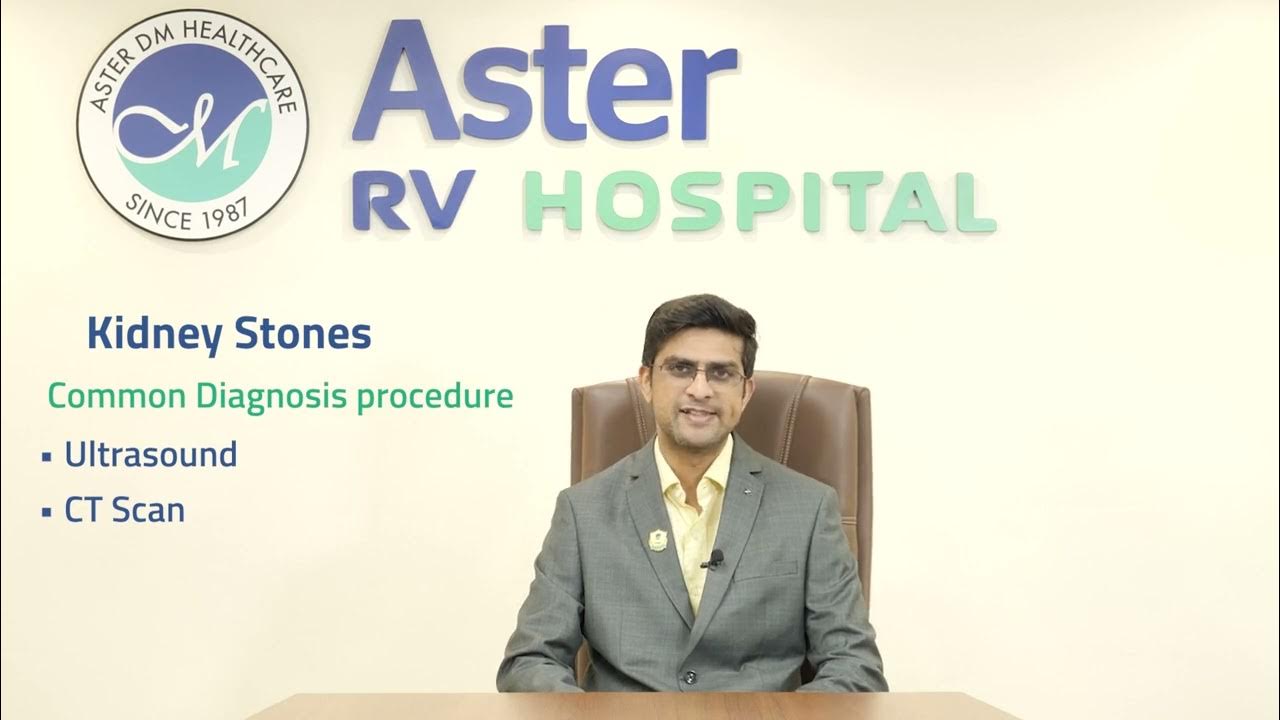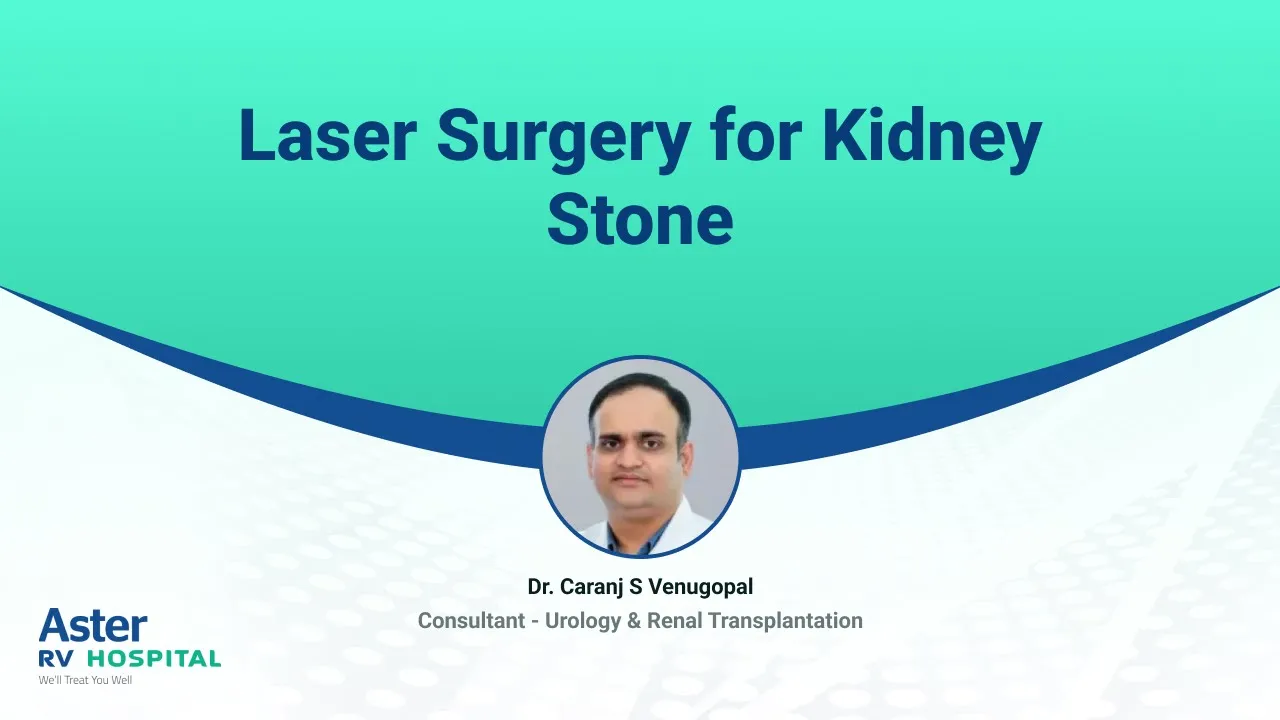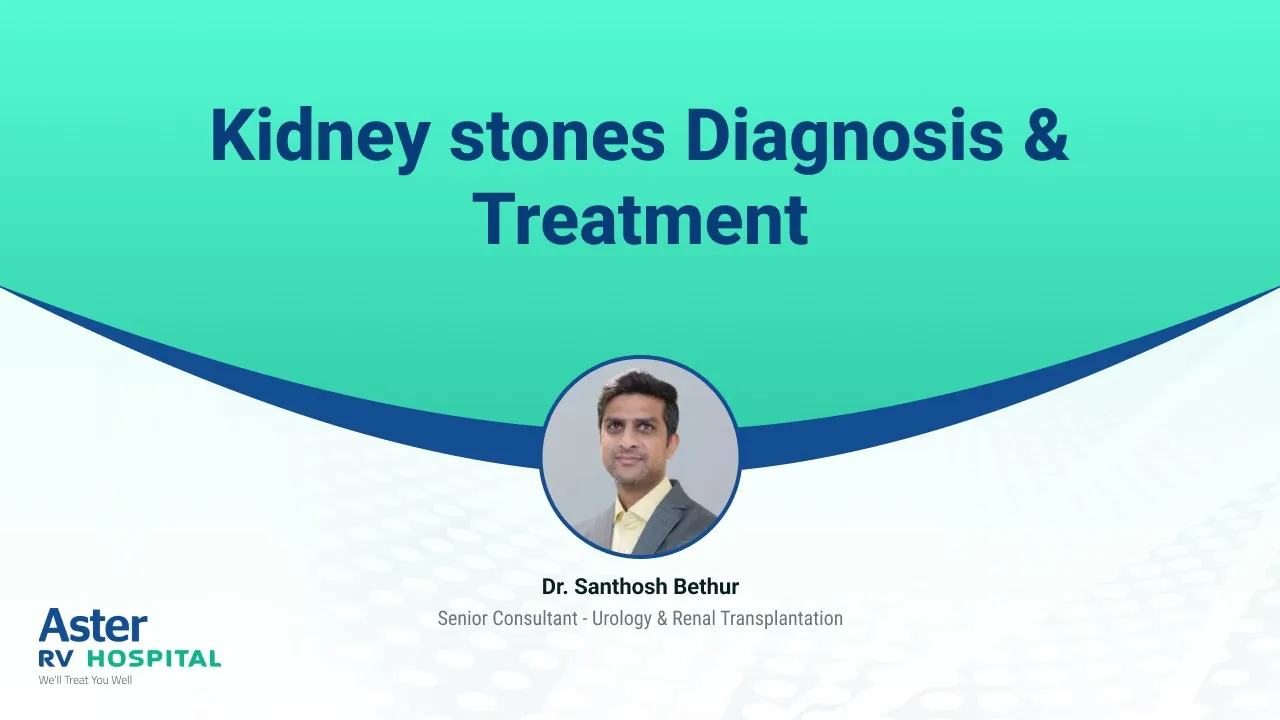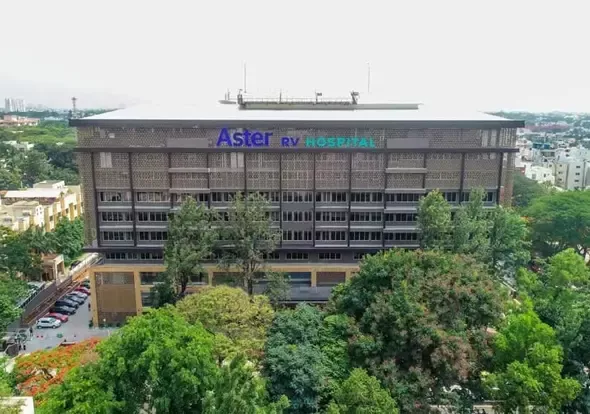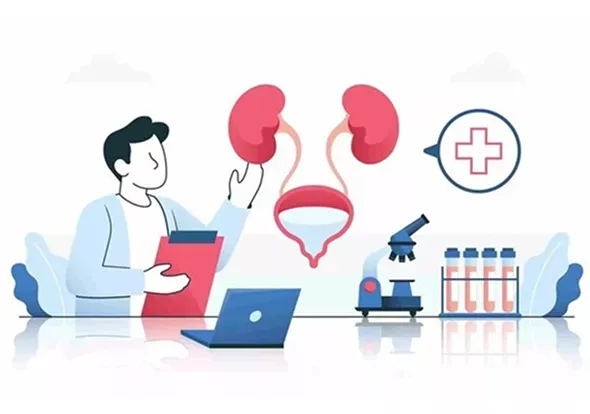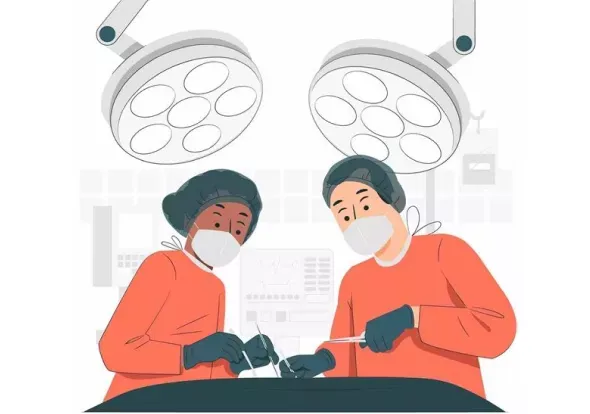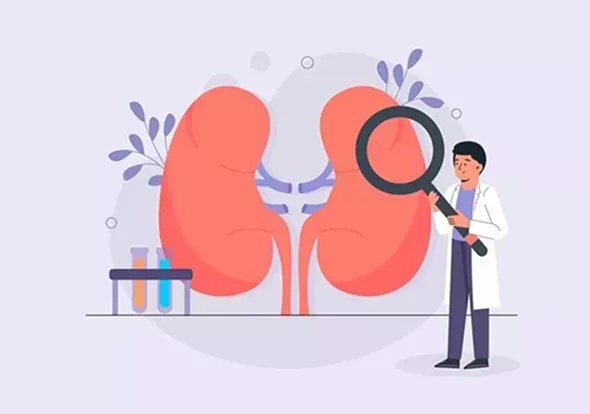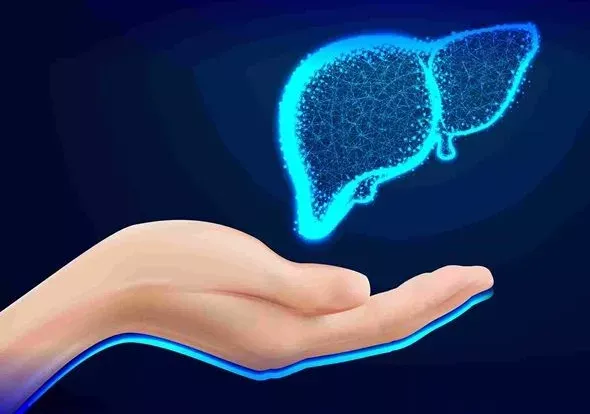Introduction
Our Urology department stands at the forefront of advanced urological care and is regarded as one of the best urology hospitals in Bangalore. We are equipped with the best urologist and andrologist in Bangalore. Our top urologists harness cutting-edge technology and world-class infrastructure to achieve the best clinical outcomes for our patients. We pride ourselves in having advanced urological technologies like Da Vinci Surgical Robot, a state-of-the-art robotic system that revolutionizes urological surgery, Holmium LASER and 3D laparoscopy. This advanced technology enables us to conduct complex procedures with unparalleled precision and efficacy, all in a minimally invasive manner. Your urological health is in expert hands, where innovation meets excellence in patient care.
Elevating Urological Health at Aster RV Hospital
We offer a wide range of specialised services to treat disorders related to the genital, and urinary organs including cancers, incontinence, prostate diseases, bladder deformities, and renal diseases.
Kidney stone
Kidney stones, small mineral deposits that form in the kidneys, can cause severe pain when they obstruct the urinary tract. These tiny, crystalline formations can result from a variety of factors, including dehydration and dietary choices. Treatment may range from conservative measures like hydration and pain management to more invasive procedures such as lithotripsy or surgical removal, all aimed at relieving discomfort and preventing further stone formation
End-stage kidney disease
End-stage kidney disease, also known as end-stage renal disease (ESRD), represents the most severe and advanced stage of kidney dysfunction. In this critical condition, the kidneys have lost almost all of their ability to function, leading to a buildup of waste and fluids in the body. Patients with ESRD require life-sustaining treatments like dialysis or kidney transplantation to survive, as the kidneys can no longer adequately filter and remove waste from the blood. Managing ESRD is a complex and lifelong journey, necessitating ongoing medical care and support to maintain the best possible quality of life.
Kidney cancer
Kidney cancer, also known as renal cell carcinoma, originates in the kidneys. It typically presents with symptoms like blood in the urine, flank pain, or a palpable mass in the abdomen. Treatment options include surgery, targeted therapies, immunotherapy, and radiation therapy, with the choice depending on the stage and type of cancer. Early detection and comprehensive treatment plans are crucial for improving outcomes and survival span.
Erectile dysfunction
Erectile dysfunction or impotence is characterized by the consistent inability to achieve or sustain an erection for sexual intercourse. Risk factors include health conditions such as diabetes, heart diseases, or psychological factors such as stress and anxiety. Seeking medical advice and support is the first step toward addressing and managing erectile dysfunction.
Prostate cancer
Prostate cancer is one of the most common cancers in males. It typically progresses slowly and may not cause noticeable symptoms in its early stages. Risk factors include progressing age, age >50 years, positive family history, obesity, etc. Screening through prostate-specific antigen (PSA) test and digital rectal exam can aid in confirming diagnosis. Treatment options include surgery, radiation therapy, hormone therapy, chemotherapy, and immunotherapy, depending on the cancer's stage and aggressiveness.
Polycystic Kidney Disease
Polycystic Kidney Disease (PKD) is a genetic disorder characterized by the formation of fluid-filled cysts in the kidneys, which can impair kidney function over time. PKD often runs in families and can lead to symptoms such as high blood pressure, pain in the abdomen or lower back, and blood in the urine. There is no cure for PKD. Its management involves controlling blood pressure, pain relief, and, in advanced cases, kidney transplantation
Gynecomastia
Enlargement of breast tissue in males, causing the breasts to appear swollen or feminine is known as gynecomastia. It results from an imbalance between estrogen and testosterone hormones. Treatment encompasses lifestyle changes to surgical correction, depending on the underlying cause and severity of the condition. Seeking medical advice can help determine the most suitable approach for managing gynecomastia


Treatments & Procedures
Treatment options for undescended testicles (cryptorchidism), depend on the child's age and the severity of the condition. The main goal of treatment is to bring the testicle(s) down into the scrotum to promote normal development and reduce the risk of complications. It is essential to address undescended testicles promptly because leaving them untreated can increase the risk of fertility issues and testicular cancer later in life. Parents should consult with a pediatric urologist to determine the most appropriate treatment plan for their child.
A high prostate-specific antigen (PSA) value does not necessarily indicate prostate cancer. PSA is a protein produced by the prostate gland, and its levels can vary for a variety of reasons. While an elevated PSA level can be a potential indicator of prostate cancer, it can also be caused by other factors, such as Benign Prostatic Hyperplasia (BPH), prostatitis, old age, infections, prostate procedures and certain medications. If the PSA level is elevated, further evaluation, such as digital rectal exam (DRE) and a prostate biopsy, may be necessary to determine whether prostate cancer is present.
Preventing kidney stones often involves making dietary and lifestyle changes to reduce the risk of stone formation. Some key strategies to help prevent kidney stones includes drinking plenty of water throughout the day to maintain urine volume, avoiding excessive calcium intake, limiting salt intake, moderate protein, alcohol and caffeine intake, increased intake of citrus foods such as oranges and lemons, limiting Oxalate-rich foods such as foods, spinach, rhubarb, and nuts, maintaining healthy weight, etc.
You can prevent the risk by adopting a few preventive measures such as,
Drinking plenty of fluids helps dilute substances in the urine that lead to stones.
Reducing sodium, limiting animal protein, and avoiding high-oxalate foods can help prevent stone formation.
In some cases, medications can help control the levels of certain substances in the urine.
Benign prostatic hyperplasia (BPH) is a condition characterized by the non-cancerous enlargement of the prostate gland. It is common in older men.
The most common symptoms include
Difficulty starting urination
Weak urine stream
Frequent urination, especially at night
Urgency to urinate
Inability to empty the bladder
Dribbling at the end of urination
There is no evidence to support that BPH increases the risk of bladder cancer. Nonetheless, due to overlapping symptoms, it is essential for individuals experiencing urinary issues to seek medical evaluation to rule out bladder cancer.
The most common signs and symptoms of urinary tract infection may include:
Strong, persistent urge to urinate
Burning sensation when urinating
Frequent, small amounts of urine
Cloudy urine
A sign of blood in the urine
Strong- or foul-smelling urine
Pain or pressure in the lower abdomen or pelvis
Prompt treatment of UTIs is crucial to prevent complications, relieve symptoms, and avoid recurrent infections.
Untreated UTIs can lead to kidney infections, which can cause permanent kidney damage.
In severe cases, a UTI can spread to the bloodstream and cause sepsis, a life-threatening condition that requires immediate medical attention.
Proper treatment can prevent recurrent infections, which are common if the initial infection is not fully resolved.
UTIs during pregnancy can lead to complications such as premature labour and low birth weight.
Proper diagnosis and treatment ensure the correct use of antibiotics, which helps prevent the development of antibiotic-resistant bacteria.
A kidney transplant is needed when an individual has end-stage renal disease (ESRD) or chronic kidney disease (CKD) that has progressed to the point where the kidneys can no longer function adequately to maintain health.
The most common causes of kidney failure may include
Diabetes
Hypertension
Kidney inflammation
Genetic disorders
Recurrent kidney infections
Autoimmune diseases
The life expectancy post-transplant can be significantly longer compared to patients on dialysis. The success rate of a kidney transplant varies based on several factors, including the patient's overall health, age, donor type, cause of kidney failure, and how well the transplant functions. In general, the five-year survival rate is around 85-90%. Regular follow-up care and adherence to medical advice are crucial for maximizing the lifespan and function of the transplanted kidney.
The most common and effective treatment for undescended testicles is surgical orchiopexy. This procedure involves making a small incision in the groin or scrotum, locating the undescended testicle, and securing it in the scrotum. Orchiopexy is typically performed when the child is between 6 months and 1 year old.
Phimosis is a condition in which the foreskin of the penis is too tight or narrow, making it difficult or impossible to retract over the head of the penis (glans). It can occur in both children and adults and may lead to discomfort, pain, or difficulty with hygiene. Management options for phimosis depend on the type and severity of the condition and may include observation, topical medications, dilatation exercise and surgery such as circumcision and preputioplasty.
Kidney stones form when the concentration of certain substances in urine, such as calcium, oxalate, and uric acid, becomes too high. Supersaturated urine allows these minerals to crystallize and stick together. Once a small crystal forms, it can attract other crystals, and they stick together, forming a larger mass. This is facilitated by the environment within the kidney, where urine flow is slow, and certain areas, like the renal papilla, provide a surface for crystals to adhere to and grow.
Factors contributing to stone formation include a positive family history, low fluid intake leading to concentrated urine, and high intake of protein, sodium, and sugar. Conditions like hyperparathyroidism, urinary tract infections, and metabolic disorders can predispose individuals to stone formation.
Yes, urinary incontinence can often be controlled or managed effectively. The approach to managing urinary incontinence depends on the type and severity of the condition. Here are some common strategies:
Lifestyle Changes:
Bladder training: This involves learning to delay urination after getting the urge to go.
Scheduled toilet trips: Going to the bathroom at regular intervals rather than waiting for the urge.
Fluid and diet management: Reducing or avoiding caffeine, alcohol, and acidic foods, and controlling fluid intake, especially before bedtime.
Kegel exercises: Strengthening the pelvic floor muscles can help support the bladder and prevent leakage.
Pads and protective garments: Specially designed absorbent pads and underwear can help manage leaks.
Medical Management:
Medications: Your doctor may prescribe various medications to help manage different types of incontinence. For example, medications to calm an overactive bladder, or to relax bladder neck muscles and prostate in men with overflow incontinence.
Medical devices: Pessaries for stress incontinence or urethral inserts to prevent leakage in women.
Surgery: Procedures such as sling procedure, bladder neck suspension or artificial urinary sphincter may be recommended for severe incontinence.
The most common risk factors include:
Progressing age
Family history
A diet rich in dairy products
Obesity
Exposure to harmful chemicals such as arsenic
Inflammation of the prostate gland
Erectile dysfunction is a treatable condition with various management options ranging from lifestyle changes and medications to surgical interventions.
Lifestyle changes should include regular physical exercise, a healthy diet, maintaining a healthy weight and avoiding smoking and alcohol.
Your doctor may recommend medications, medical devices such as a vacuum erection device or surgical options such as penile implants and vascular surgery to improve erectile function.
Individuals with erectile dysfunction can still father children, often with the help of assisted reproductive technologies if natural conception is challenging. Consulting a healthcare provider is essential to determine the most appropriate treatment and fertility options based on individual circumstances.
Let's hear from our Doctor's
